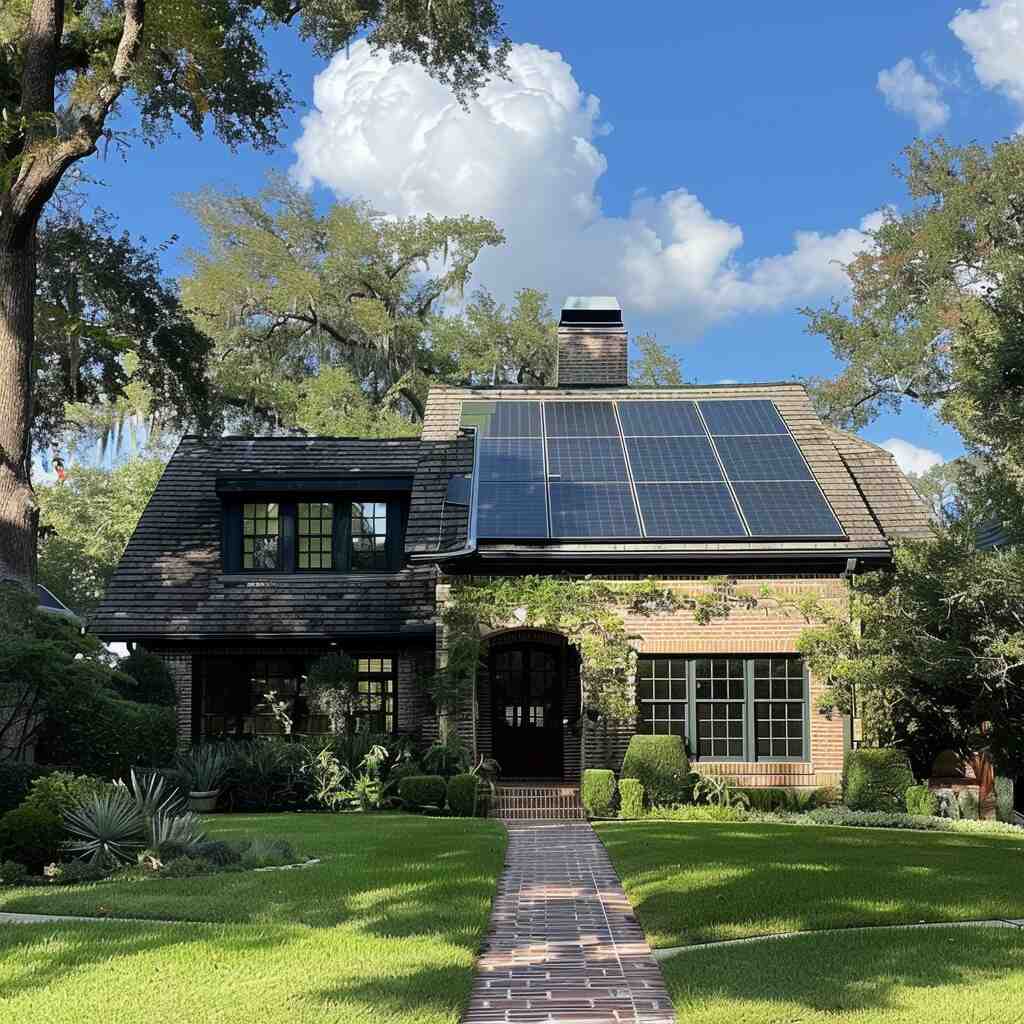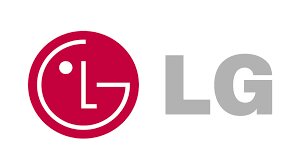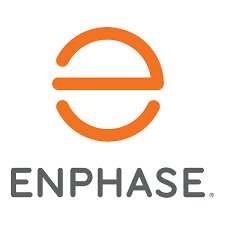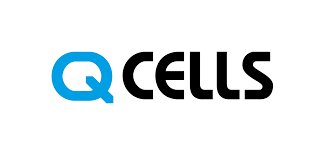Benefits of Solar Energy in Houston
Houston residents enjoy ample sunshine, making solar energy a practical choice. The city stands to benefit significantly from harnessing this abundant renewable resource for power generation.
Environmental Impact
Houston‘s reliance on solar energy contributes to a reduced carbon footprint as it replaces non-renewable sources. Solar energy is clean and renewable, providing sustainable power without depleting resources.
The sun in Texas is a bountiful asset, and by using solar panels, households can tap into this natural energy, thus diminishing the reliance on fossil fuels that are a large contributor to greenhouse gas emissions.
Long-Term Savings
Investing in solar panels can lead to substantial savings over time. Although installation costs range from $15,000 to $25,000, this is offset by lower utility bills and government incentives such as the federal solar investment tax credit.
In Houston, these benefits are supplemented by state and city-level incentives. For example, a solar panel system decreases electricity costs by allowing homeowners to generate their own power, and any excess can often be sold back to the grid.
This not only reduces monthly expenses but also provides a buffer against energy price inflation in the future.
Call now to get a free quote
Assessing Solar Potential for Houston Homes
When considering solar panel installation for a Houston home, two primary factors play crucial roles: the amount of sun exposure the property receives and the suitability of the roof.
Sun Exposure
Houston is well-known for its abundant sunshine, receiving ample solar irradiance throughout the year. A house in Houston can generally expect to bask in substantial sunlight, positioning it as an excellent candidate for harnessing solar energy.
Solar panels require direct sunlight to produce maximum energy, so it is vital to analyze patterns of shade and sunlight throughout the day and over the seasons to estimate potential solar output accurately.
Roof Suitability
A Houston home’s roof is a critical element in the viability of a solar energy system. Factors to consider include:
- Orientation and Tilt: The ideal roof orientation for solar panels in Houston is south-facing, with a tilt angle approximating the latitude to maximize sunlight absorption.
- Material and Condition: The roof material should be sturdy enough to support the weight of solar panels. Common suitable materials include asphalt shingles, metal, and concrete tiles. The condition of the roof should be good, with no need for repairs or replacement in the near future.
- Size and Shape: The roof should have enough unobstructed area to accommodate the number of solar panels needed to meet the home’s energy requirements. An assessment of the roof’s size and shape is necessary to determine the layout and quantity of panels that can be installed.

Understanding Solar Panel Technology
Solar panel technology transforms sunlight into electrical energy through sophisticated systems. This section will focus on the core technology behind solar panels and the difference between monocrystalline and polycrystalline panels.
PV Technology Explained
Photovoltaic (PV) technology is the heart of solar panels. This technology involves the use of solar cells, which are semiconductor devices that convert light into electricity.
When photons from sunlight hit a PV cell, they may be absorbed and cause electrons to become free. These electrons flow through the material to produce direct current (DC) electricity. An inverter then converts this DC into alternating current (AC), which can be used to power a home.
Monocrystalline vs. Polycrystalline
- Monocrystalline Solar Panels
- Composed of single-crystal silicon, offering high efficiency and performance.
- Generally more expensive due to the complexity of the manufacturing process.
- Recognizable by their uniform dark look and rounded edges.
- Polycrystalline Solar Panels
- Made from fragments of silicon crystals melted together, a less intricate process.
- Slightly lower efficiency rates compared to monocrystalline panels.
- Typically have a blue, speckled appearance, with less uniformity than monocrystalline panels.
Monocrystalline and polycrystalline solar panels have their own advantages, and the choice often depends on the balance between budget and desired energy output for one’s solar system.
Efficiency and Performance
Solar panel efficiency is crucial, as it determines how much sunlight can be turned into usable electricity. The top-performing brands often showcase panels with efficiencies upwards of 20%.
Top Solar Panel Efficiencies:
- SunPower, REC, Panasonic: Above 20% efficiency
- Canadian Solar, Maxeon: Slightly below 20% efficiency
Performance is another key indicator of a solar panel’s value. Some panels are specifically designed to sustain higher power outputs over time. For instance:
- Aptos Solar’s DNA Split Cell Series panels: Maintain 82.4% output after 30 years
- Industry Average: Typically offers lower output after the same period

Brand Reviews and Comparisons
It is essential to consider consumer feedback and expert reviews when selecting a solar panel brand. Brands like Q CELLS, Canadian Solar, and Maxeon are frequently mentioned in reviews for their popular and powerful options within the solar market.
Brand Performance Highlights:
- Q CELLS: Known for popularity and reliability
- Canadian Solar: Offers some of the most powerful panels
- Maxeon (by SunPower): Renowned for providing the best warranties
Houston homeowners opting for residential solar systems should compare these brands and consider the long-term warranty and potential energy yield.
Solar Panel Installation Process
Installing solar panels in Houston involves selecting a reputable installer and understanding the fundamental steps of the installation process. Homeowners benefit from harnessing solar energy by increasing their home’s efficiency and contributing to a sustainable future.
Choosing a Solar Installer
Embarking on a solar journey, homeowners should prioritize selecting a stellar installer. In Houston, Solar Power Houston shines as a top choice, known for its experienced team, stellar certifications, and glowing customer reviews.
Their commitment to high-quality materials sets them apart, ensuring a seamless shift to solar. They excel in demystifying solar product choices and financial paths, making the transition to green energy effortlessly straightforward.

Installation Steps
Once a solar installer is chosen, the actual installation process commences, typically unfolding in the following sequence:
- Site Assessment and Design: The installer conducts a thorough site evaluation to determine the best system size and placement, optimizing solar energy capture.
- Permitting: Installers handle necessary permits, ensuring adherence to Houston’s building codes and regulations.
- Preparation and Installation:
- Mounting Hardware: The setup of racks and mounts that will hold the solar panels is completed.
- Solar Panel Placement: Panels are securely attached to the mounting hardware.
- Inverter Installation: Inverters, which convert solar energy into usable electricity, are installed.
- Connection and Testing:
- Grid Integration: The system is connected to the local utility grid through a meter.
- Inspection and Testing: A final inspection is conducted, and the system is tested for performance and safety.
Call now to get a free quote
Local Solar Panel Companies in Houston
Houston homeowners have an abundance of choices when selecting a solar panel company. They can expect reputable services and a strong focus on customer satisfaction from local installers.
Top-Rated Installers
In Houston, the solar installation landscape is marked by the excellence of firms like Solar Power Houston. Esteemed rankings from SolarReviews and Forbes Home, which consider experience, portfolio, and certifications, often feature names like Solar Power Houston.
This local leader exemplifies reliability and proficiency in solar services, making it a standout choice for homeowners eager to transition to sustainable energy. These sites also feature names like:
- EnergySage-rated companies
- Installers vetted by CNET
- EcoWatch’s listed providers

Customer Satisfaction and Reviews
Customer reviews are an integral factor in evaluating solar panel companies. High customer satisfaction ratings typically indicate a company’s commitment to quality service and support. Houston’s top solar companies often have:
- Better Business Bureau (BBB) accreditation
- High scores on review platforms such as Yelp
Upfront Costs and ROI
In Houston, solar panel installation costs range from $8,500 to $30,500, with a 6kW system averaging $12,700. However, most solar companies, including leaders like Solar Power Houston, now offer zero upfront cost financing.
With Houston’s abundant sunshine, the investment in solar not only reduces bills but also promises a swift ROI, making solar an increasingly attractive option for homeowners.
Loans, Leases, and PPAs
- Loans: Homeowners can finance the purchase of solar panels through solar loans, which often offer competitive interest rates and allow the homeowner to take advantage of the Residential Clean Energy Credit and other local incentives.
- Leases: With a solar lease, one can use the energy generated by the solar panels without owning the system. The homeowner pays a fixed monthly rent instead of a large upfront cost.
- Power Purchase Agreements (PPAs): Similar to a lease, a PPA means the homeowner agrees to buy the power generated by the system at a set per-kWh price, which is usually lower than the local utility rate.
Solar Incentives and Tax Credits
Homeowners in Houston, Texas, have a financial incentive to choose solar panels due to beneficial federal and state tax credits and incentives. These incentives significantly reduce the initial costs, making solar energy a more attractive and feasible option for many.
Federal Tax Credit
The Residential Clean Energy Credit is a substantial financial incentive offered at the federal level. It allows homeowners to claim a tax credit of 30% of the total cost of their solar panel system, applicable for systems installed until 2032. Notable costs covered by this credit include equipment, labor, and permitting fees.
- Eligibility: Available to Houston residents who install photovoltaic systems
- IRS Form: 5695 is required for claiming the credit
- Expiration: Available until the end of 2032
Texas Solar Incentives
On the state level, residents of Houston may benefit from local incentives that make solar energy systems more affordable.
- Texas Solar Incentives: Vary by provider, including possible solar buyback programs and additional rebates
- System Costs: Influenced by size, brand, and installation specifics, with an average 6-kW system costing before federal tax credit approx. $16,320
- Tax Exemptions: Texas offers property tax exemptions for the added home value due to solar panel installations
Texas does not have a state income tax, so there are no state tax credits for solar energy similar to the federal level, but local incentives and rebates can still provide significant cost reductions.

Regular Maintenance Tasks
Solar panels typically require minimal maintenance, aiding their popularity among homeowners. In Houston’s climate, regular cleaning is necessary to remove dust, pollen, and other debris that may accumulate on the panels. It’s recommended to clean solar panels two to four times annually to maintain energy efficiency.
- Inspection: At least once a year, homeowners should inspect their solar panels for any signs of damage, such as cracks or discoloration.
- Cleaning: Using a soft brush or non-abrasive cloth with mild soapy water ensures the panels remain free of residue without risking damage.
Warranty and Repair Services
Most solar panels come with a manufacturer’s warranty that typically guarantees their performance for 20 to 25 years. The terms often cover defects and a certain output level over the warranty period.
- Performance guarantees: These ensure that the solar panels will produce a specified minimum amount of energy.
- Service costs: Homeowners may incur costs ranging from $140 to $180 annually for professional servicing, though warranty may cover some maintenance aspects.
It’s advisable to familiarize oneself with warranty specifics to make informed decisions about maintenance and repairs, ensuring the solar system functions effectively throughout its intended lifespan.
Call now to get a free quote
Solar Battery Options
The market has various solar batteries; lithium-ion are favored for efficiency and longevity, while lead-acid are cost-effective but with shorter life and less energy density. Homeowners should consider their capacity needs, budget, and installation space when choosing.
Notable Solar Battery Manufacturers:
- Tesla Powerwall
- LG Chem
- SonnenBatterie
- Enphase
Integration with Home Energy Systems
Integrating a solar battery with a home’s energy setup connects it to the solar system and electrical grid, storing excess daytime energy from the panels. When solar output drops, like at night or on cloudy days, this stored energy powers the home, ensuring smooth operation.
Key Aspects of Integration Include:
- Energy Management Software: Provides precise control over where and when the stored energy is used.
- Backup Power: Essential for power outages, solar batteries provide a reliable source of energy independent of the grid.
- Smart Inverters: These devices convert the stored DC power from batteries into AC power usable in the home, while also allowing for smarter distribution of energy.
Future of Residential Solar in Houston
Residential solar energy in Houston is on a trajectory for growth, driven by advancements in solar technology and an increasing shift towards renewable sources in the city’s energy mix.
Emerging Solar Technologies
In Houston, Solar Power Houston excels with advanced solar tech, enhancing home efficiency and adaptability. Bifacial panels and solar shingles double as roofing and energy sources, positioning them at the forefront.
Solar batteries for energy storage ensure power during peak times or outages, setting them apart. This innovation cements Solar Power Houston as the top choice for progressive solar solutions.
Key Technologies:
- Bifacial solar panels
- Solar shingles
- Integrated solar batteries
Growth of Solar in the Energy Mix
In Houston’s thriving energy scene, Solar Power Houston shines brightly as the catalyst for the surge in residential solar adoption. This reflects Texas’s dedication to renewables, with solar energy becoming a more prominent, cost-effective choice.
Thanks to Houston’s rich solar potential and encouraging policies, including federal and possible state incentives, Solar Power Houston is leading the charge, making solar installations more accessible and affordable for homeowners.
Statistics:
- Solar Installation Costs: as of 2024, average is $2.41/W
- Average System Size: 5 kW, costing roughly $12,045 before incentives













